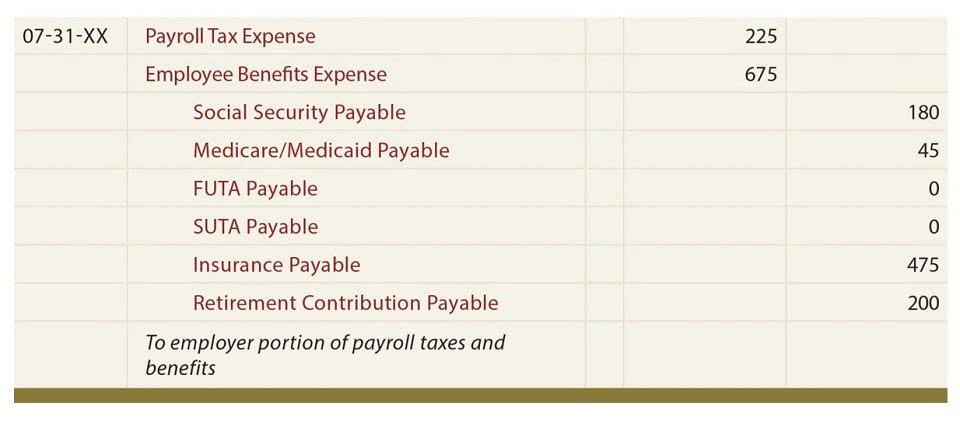
Companies that manage to maintain a low ratio while still delivering strong returns are often considered the gold standard in the sector. The Management Fee Ratio is more than just a number it is an indicator of the asset management firm’s operational health and competitiveness. The lower the ratio, the more efficient the firm tends to be, as it suggests that the firm can manage its expenses while still providing adequate service to clients. Conversely, a higher ratio may signal inefficiencies, or it may reflect the firm’s strategy of charging higher fees for specialized services.
A. Research and Market Benchmarking:

In this comprehensive guide, we will delve into the intricate details of management fees and their far-reaching implications for startups in the venture capital landscape. Boutique asset management firms, which often focus on specialized investment strategies or niche markets, may charge higher fees due to the bespoke nature of their services. Large-scale firms, on the other hand, may benefit from economies of scale, allowing them to charge lower fees while maintaining profitability.

Turnover Ratio
AMCs typically charge management fees, performance fees, administrative fees, and sometimes exit fees. Management fees are based on the total assets under management, while performance fees are tied to the portfolio’s success. Administrative fees cover operational costs, and exit fees apply for the early withdrawal of investments. The management fee and management expense ratio (MER) are phrases commonly used when discussing mutual funds, exchange-traded funds (ETFs), and other investment funds. Tiered fees offer a more nuanced approach by varying the fee percentage based on the amount of assets under management. This structure can provide a balance between incentivizing fund managers and offering cost efficiencies to investors.
Strategies to Minimize Asset Management Company (AMC) Fees
- Stakeholders in the venture capital ecosystem encompass a diverse range of entities, each with unique interests and concerns regarding management fees.
- Transfer pricing is a fundamental concept in the context of management fees between related companies.
- Understanding the components of management fees is essential for investors to assess the overall cost of their investment management.
- Accurate amortization schedules and effective interest calculations are essential to ensure the integrity of financial statements.
- One of the key distinctions in the asset management industry is between active and passive management strategies.
For example, a fund with a 1% management fee will charge law firm chart of accounts $1,000 annually for every $100,000 of AUM. Fixed fees are predetermined amounts paid regularly, regardless of the actual services rendered or the performance of the managed entity. This type of fee provides predictability and simplicity in financial planning, as both parties know the exact cost involved.
What is your risk tolerance?
- Embracing these best practices empowers startups to navigate the venture capital landscape effectively, safeguarding their financial interests and optimizing their capabilities for sustainable growth and success.
- For instance, a parent company might receive a performance-based fee if a subsidiary meets certain financial or operational benchmarks.
- Enhance your understanding of management fee and optimize your strategies for success with Lark’s tailored solutions designed for the unique needs of the investment landscape.
- Higher-cost actively-managed funds do tend to underperform lower-cost passively-managed funds in all categories, according to decades of Morningstar research.
- AMCs typically charge management fees, performance fees, administrative fees, and sometimes exit fees.
By being informed and proactive in managing management fees, individuals and businesses can optimize their returns and ensure a positive outcome for all parties involved. There are several methods used to calculate management fees, including percentage-based fees, flat fees, tiered fee structures, and performance-based fees. Property management fees are levied by property managers for managing residential or commercial properties. These fees compensate managers for services such as tenant screening, rent collection, property maintenance, and lease administration. Management fee refers to a periodic payment that an investor pays an investment fund to compensate the asset managers for their skills, ability, and time required for managing the portfolio.
- A clawback provision serves as a mechanism to restore previously distributed profits to limited partners if subsequent investment performance fails to meet specified benchmarks.
- While Fidelity has reduced fees on many of its passive products to remain competitive with low-cost providers like Vanguard, the firm’s active funds tend to charge higher fees, which brings the overall ratio up.
- Fund managers are required to provide regular updates and reports, detailing any changes in fee structures and the impact on investment returns.
- The management fee is paid by investors to investment professionals in order to gain access to their expertise and resources.
- Companies must ensure that their fee structures align with industry regulations and provide transparent documentation to avoid potential legal and financial repercussions.
- Management fee waivers and cashless contributions can offer substantial tax advantages for fund managers but require planning and strict adherence to IRS guidelines.
- High management fees can eat into profits, especially in years when market returns are lower.
Fidelity Investments

In exchange for paying management fees, investors are provided with access to the expertise and resources of investment professionals. The professionals can help investors with allocating risk, rebalancing portfolios, or providing personalized investment advice. Venture capital plays a pivotal role in the growth and success of startups, offering crucial financial support and expertise. However, within the realm of venture capital, various fees and charges are involved, shaping the financial dynamics and impacting the stakeholders involved.
- Performance metrics are another method used to calculate management fees, particularly in performance-based fee structures.
- These metrics can include benchmarks such as stock indices, specific return targets, or other financial indicators.
- Startups must diligently factor in these fees when strategizing their financial trajectories and growth projections, ensuring resilience amidst financial constraints.
- Transparent communication and proactive planning are vital for startups to secure mutually beneficial fee structures within the venture capital landscape.
- Companies often need to account for the transfer and utilization of IP, which can complicate fee structures.
- Hurdle rates and high-water marks are mechanisms designed to protect investors in performance-based fee structures.
Evaluating Service Offerings
For instance, a fund might charge 1.5% on the first $1 million of assets, 1% on the what are retained earnings next $4 million, and 0.75% on any assets above $5 million. This sliding scale can make investing more attractive for those with larger portfolios, as the effective fee rate decreases with higher investment amounts. Tiered fees are often seen in mutual funds and wealth management services, where they can help attract a diverse range of investors while still rewarding managers for their efforts. In exchange for paying this fee, investors get access to the resources and expertise of investment professionals.
Ask Any Financial Question
Therefore, if an investor spots a fee of more than 1.5%, and certainly over 2%, they might want to look at other investment funds. Of course, this is not the only aspect one should consider while allocating funds to investment funds. Investors must note that the fees paid to hold, what are management fees in accounting sell, or purchase any financial asset are not subject to an income tax deduction.

